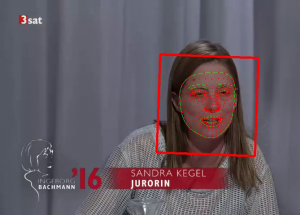Evaluation of literature by professional and layperson critics: A digital and literary sociological analysis of evaluative talk of literature through the prism of literary prizes (2007-2017)
Recently, the CEO of a Dutch publishing company proposed that literary quality should be measured and predicted by means of algorithms and big data-based audience research, rather than by experts. His claim drew ire and caused the exodus of many of established authors; at the same time, the statement is indicative of a broader societal trend in which the knowledge of professional ‘pundits’ is rivalled and challenged by technological developments and the reliance on “the wisdom of the crowds”. Scholars have argued that debates on the validity of tastes and evaluation are indicative of “a waning consensus about what has cultural value”.
This project aims to be a systematic study into the phenomenon of “layman/layperson criticism” and proposes to do both qualitative and quantitative research into these perceptions of readers by means of a digitally empowered method of literary sociology. For this, we draw on a broad corpus of critical discourse generated by six literary prizes in three different linguistic communities (German, Dutch and English) in the period 2007-2017, namely the Georg-Büchner-Preis and Ingeborg-Bachmann-Preis, the Prijs der Nederlandse Letteren and the Fintro Literatuurprijs as well as the Booker and the Not the Booker Prize. The corpora consist of social media contributions on the one hand, such as tweets, Instagram posts Goodreads reviews, and official jury reports on the other hand, which are annotated and studied using Aspect-Based Sentiment Analysis (ABSA). We aim to answer questions such as: What are the criteria for telling ‘good’ from ‘bad’ literature used by both professional and layperson critics? What role does the attribution of societal engagement play in the judgment of contemporary literature? What are the (dis)similarities between the literary discourse on the various social media platforms or between the three language communities? What are the differences between academic prizes and literary prizes that draw on audience participation?
Do you want to learn more about the evolution of our research and take a look at our presentations and conference contributions? You can find all abstracts, recordings and posters here.
If you are interested in the research, you might be interested in watching my interview (in Dutch) about the project and dissertation. I was interviewed by Marc Vermeulen of the Bond van Gentse Germanisten. You can also watch the interview on their website.
The Death/Resurrection of the Critic? Generating Literary Criticism in Times of DH
In the german linguistic community, one of the most prominent and influential professional literary critics was without a doubt Marcel Reich-Ranicki. During the heyday of professional criticism, he presented the Literarisches Quartett and became the Literaturpapst, godfather and maker or breaker of literature. The democratisation of the public sphere itself has led to a sense of discomfort with the professional critics, who feel their role and authority are pressured and threatened by this development (e.g. Chong 2020). Meanwhile, the number of reader-reviewers and layperson critics who share their literary opinions on social media platforms such as Twitter, Instagram, Goodreads, etc. increases steadily.
Is this the death of the professional critic? And how would the Critic of all critics have interpreted this evolution? Though Reich-Ranicki is no longer amongst us, the continuous evolution of digital tools has enabled us to let him share his wisdom with us once more by generating a possible response:
